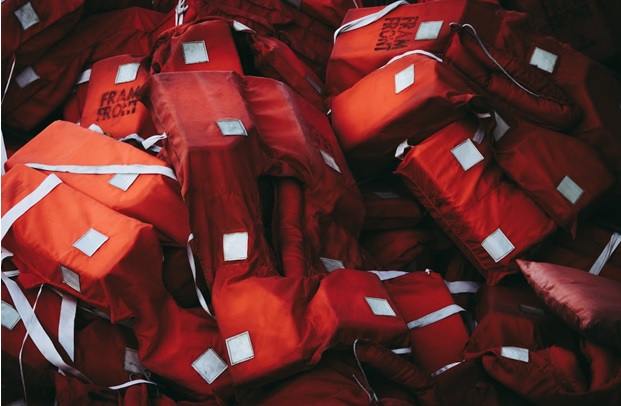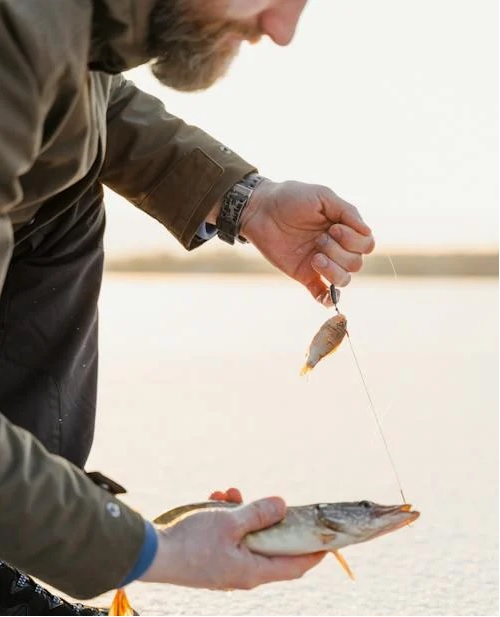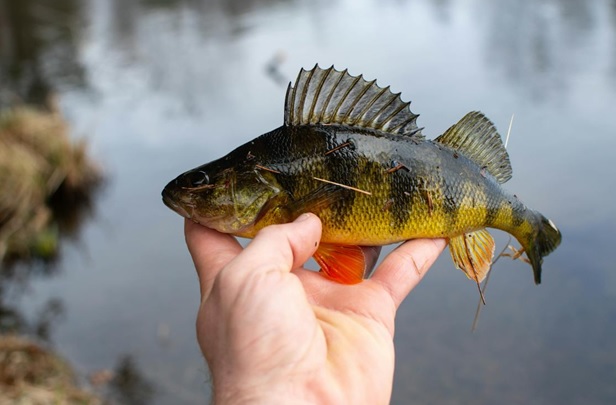Posted by Forrest on Feb 8th 2024
Gearing Your Hobie Outback for Cold Weather Fishing
Your Hobie Outback is a fishing machine, and designed specifically with the needs of anglers in mind.
It features an extra-wide deck that offers improved stability and visibility when casting, fighting, and sight fishing, along with plenty of room for storage, as well as rod holders.
It’s geared for comfort, too, with an adjustable Vantage CTW seat that provides next-level lumbar support and room for extra comfort on the water.
On top of that, it’s powered by the advanced MirageDrive 180 with Kick-Up Turbo Fins that automatically retract on contact with an obstacle, protecting the drive system and enabling unparalleled shallow-water access.
Granted, most of the guys out there hauling a Hobie Outback to and from their honey holes are probably out during the hotter months of the year, but that doesn’t mean you can’t succeed on the water in the winter from a Hobie Outback.
For one, the stability of the platform will help keep you safer, and for another, the hands-free pedal system will keep you more dry than if you were using a paddle.
Beyond that, here are some things you can do to outfit your outback for winter fishing success.
Having a Float Plan
Before you worry about what to actually bring with you on the water, make sure you always have a float plan before shoving off, and that at least one person ashore knows what it is.
It’s important to have a float plan in the summer, but even more critical in the winter. It also doesn’t have to be overcomplicated. Just let someone know what your plan is; where you’ll be fishing, when you’re leaving, and when you intend to be back.
Keeping Warm, Keeping Safe
In the winter, it’s critical that you dress appropriately for the weather. Whatever you’d dress for on land, add another layer of protection for the water.
It’s also important to remember that it’s not just cold air that can be dangerous, but cold water. Opt for wool instead of cotton (wool stays warm when wet, and cotton saps your heat) and make sure you always wear a completely waterproof outer shell.
On top of that, never hit the water in the winter without a life vest, regardless of what you do in the summer. In some areas, it’s illegal to be in a boat in the colder months of the year without wearing (not just having) a life vest, anyway.

Slow Down and Keep Quiet
When it comes to actually trying to get to the fish, there are two things you need to remember: be slow, and be quiet.
When the water is cold, the fish slow down. They’re not as lively or aggressive in cold water as they are in the winter, even coldwater species like pike, trout, salmon and walleye.
So, to get their attention, you’re going to want to slow the cadence of your technique to a crawl, especially if you’re fishing with artificials. Pump the brakes on the action of your lure in the winter, and wait during pauses - for as long as you can stand to.
The other thing is that fish, though sluggish, can still be wary in cold water. Sneak up on them, and don’t get lazy. Slow your pedaling when you get near cover or structure, you don’t want to spook the fish.
Go Live or Drop Cut Bait

Another tip is that, while you can still be successful fishing artificials in the winter, if they’re not performing, opt for live bait or cut bait.
The thing about fish in the winter is this: they don’t want to move unless they’re going to get a mouthful for it, and fish are less aggressive and therefore less likely to reward you with a reaction strike,
Therefore, it can be pretty tough to catch fish on lures in the winter. Either swap that metal or plug for a worm or shiner, or at a bare minimum, tip your artificials with a piece of cut bait.
Why Fish in the Winter, Anyway?

Granted, the ice-out and spring spawn are usually the two best times of year to target most fish, especially warmwater species like bass, pickerel, and panfish, but the winter is a great time of year to try your luck, too.
For one, there are fewer crowds on the water in the winter, so you’ll be more likely to have a body of water to yourself.
Another is that fish (especially freshwater fish) taste better in the winter, since the water is clearer and cleaner during the colder months of the year.
Finally, fishing in the winter can make you a better angler because it will challenge you - fish are, in general, harder to catch when they’re cold. That’s just a fact of life.
But that shouldn’t keep you ashore. Get the Hobie Outback ready and hit the water before the spring thaw - it may well be worth it.

